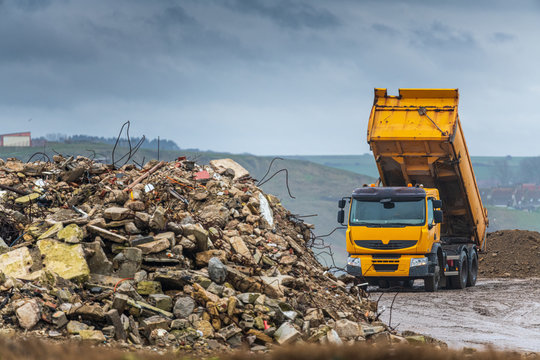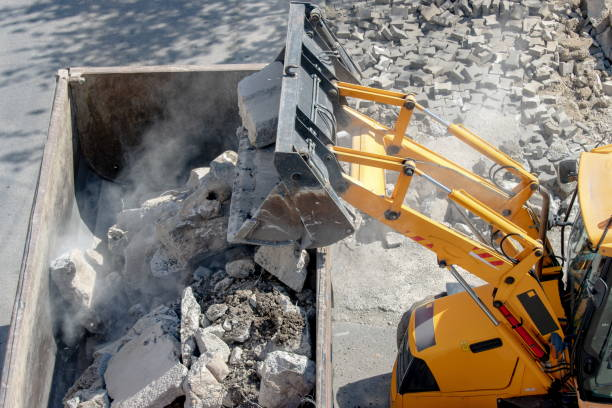
Top Industries
Quick Links
Subscribe Now
Join Thousands of Industry Leaders!
Copyright © 2025 Companies in UAE. All rights reserved.
June 26, 2025
companies.uae

How to Keep Your Job Site Clean, Safe, and Efficient No matter the construction project you are undertaking—ground-up build, renovations, or total demolition—there is one constant: wastage. Before you know it, your site will be overrun with concrete, metal scraps, drywall, timbers, tile, and packaging waste—virtually everywhere you look. This is the point a construction waste removal company comes into play—an unsung hero in keeping production moving safely and sustainably.
In the frenzy of tight schedules, heavy machinery, and unexpected weather conditions, it can be easy to forget about waste. However, if it’s not managed properly, this can turn into a serious dilemma, leading to unnecessary slips, falls, fines, and disappointments. The best construction junk removal services help keep you compliant, organized, and focused on the only thing that should matter: building.
Now let’s explore what these construction debris removal professionals do, what services they provide, and how to select the best partner for your project.
Why Is Construction Debris Removal So Important?
When you’re on the clock at a job site, space is very valuable. It’s important to ensure pile-ups of rubble or lower-grade material do not impede access, create a slip-and-fall hazard, or become a fire hazard. The responsibility of having a professional construction debris clean-up is not only about aesthetics—it’s meant to:
The best companies do more than drop off a truck and some bins. Here are their most common services:
1. Construction Waste Removals
This includes the removal of concrete, bricks, wood, insulation materials, drywall and drywall pieces, wires and piping, and general debris from the construction site. These services are offered quickly and safely with established protocols in place.
2.Post-Construction Cleaning
The clean-up after construction is different from a standard clean-up and typically involves removing dust from the initial clean-up, packaging, leftover materials, and unsafe sharp objects left behind. This service is key to a handover, or when someone is moving in to a living space—yet another occupancy day.
3.Demolition Waste Removals
Demolition jobs usually create tons of mixed waste and will often require a demolition waste removal service, where the whole purpose is to provide specialized services for unsurpassed waste sorting, heavy-duty hauling, and disposal. This may include using roll-off dumpsters and cranes to move the waste.
4.Recycling and Sorting
Quality construction waste recycling companies will sort usable materials (metal, wood, concrete) for reuse or recycling, which reduces your environmental impact and sometimes saves you money.
5.Dumpster Rental for Construction Sites
As a contractor, some waste companies will provide flexible dumpster rentals, allowing you to load debris yourself while they handle the pickup and disposal.
Who Uses These Services?
Any number of professionals in the building industry can apply demolition debris removal and construction waste disposal services. Here are some examples:
General contractors and builders
Whether it be a simple remodel or a multiple-phase commercial build, contractor waste removal and recycling services help keep your project compliant and on time.
Choosing the Right Construction Junk Removal Partner
Not every waste removal service is the same. Here’s what to consider when you’re hiring a construction junk removal company:
Experience with Construction Sites
You need a team that has experience following job site protocol, is safe working around heavy machinery, and can liaise with job site superintendents.
Proper Licensing and Insurance
Waste haulers and disposal must comply with local and national regulations. Make sure that your provider is licensed properly and has the appropriate insurance.
Quick Turnaround Times
Look for a company that is offering same-day and next-day service. Any time there is a delay with removing waste, in turn, it slows down the entire project!
Sustainable Procedures
Check into the percentage of your waste that is diverted from the landfill. The better construction waste removal companies will provide green disposal opportunities and track their recycling percentages.
Scalable Solutions
Whether you have one build site or several developments, select a partner that can accommodate current and future growth and also serve various types of building site waste disposal.
Reasons why Construction Waste Removal is on the rise
The need to manage waste responsibly has never been under more pressure due to urban development, environmental regulations, and increasing materials costs. There is also enforcement of illegal dumping and stricter requirements for waste disposal and recycling.
This has contributed to more projects engaging with commercial waste hauling companies directly, who eliminate the waste but also help find it, sort it, and report it for sustainability audits.
Also, LEED-compliant waste removal services are helping projects achieve green building certifications, which are becoming a requirement for many developers.
Local or National? Which do you select
Generally speaking, a local construction debris hauler may have knowledge of specific city regulations, a faster turnaround, and potentially better pricing for ongoing work.
On the other hand, national or regional waste removal companies typically offer more services, a bigger variety of bin sizes, and an effective tracking and reporting process—to large or multi-site contractors, this is important.
Regardless of who you choose, ensure they have positive reviews, responsive customer service, and a clear plan to remove your waste.
Conclusion:
Construction not only involves building something new, but it also involves demolishing, removing material, and cleaning. Without the aid of reputable construction debris removal services, even the best-organized site can slow to a stop.
So whether you’re preparing for a new project or cleaning up after one, don’t treat waste management as a last resort. It is just as important as your plans and team.
From construction debris removal to post-construction cleanup, these services ensure that jobs remain organized, legal, and safe– allowing you to focus on what you love and are good at most: building.
Understand how leading construction waste removal companies help your job sites stay safe, clean, and state compliant. Understand services available, benefits, and choosing the right company.

Join Thousands of Industry Leaders!
Copyright © 2025 Companies in UAE. All rights reserved.